`  I just finished Kasie West’s newest creation Lucky In Love which is due to come out in July. (Right in time for my birthday, but I got a signed ARC because the reading gods love me! Well, my friend, Rachel, does as she braved a signing a couple weeks ago. Rachel does her own reviews and is always good for a recommend. Here is her website.)
I just finished Kasie West’s newest creation Lucky In Love which is due to come out in July. (Right in time for my birthday, but I got a signed ARC because the reading gods love me! Well, my friend, Rachel, does as she braved a signing a couple weeks ago. Rachel does her own reviews and is always good for a recommend. Here is her website.)
Lucky In Love is about a high school senior, Maddie. She is a super focused, studios teen. The kind that forms plans to make plans (rare breed, I know.) She is determined to get into a good college and earn some scholarships to pay for it, determined to keep her parents from divorce, her brother from his wallowing self-destructive tendencies, and her co-worker Seth securely in the friend zone. She has plans after all, and boyfriends don’t fit into it. (Maddie and her friends have made a “no boyfriends” pact, which means they definitely didn’t pay attention in US History because all the world wars started because of similar pacts. #truestory.) After a disastrous 18th birthday, Maddie buys a lottery ticket with her last two dollars on a whim. She wins! $50,000,000, to be exact. (I wrote it out so you can see all the zeros.) Life is great now, right? Money solves all problems, right? Happily ever after, right? Yeah, no.
Before I get into my thoughts on this particular novel I want to comment on all of Kasie West’s novels in general, well her contemporary novels. I haven’t read Pivot Point or its sequel, Split Second. But, I have had the pleasure of all of West’s contemporary YA romances. I’ve read several YA romances in recent years, and I have to say that Kasie West has a very unique flavor. I want to call it wholesome, but that isn’t quite accurate. There is just something very good about her writing. And I don’t necessarily mean that in a technical or even aesthetic sense. This isn’t to say she doesn’t have bad characters or her characters don’t make bad choices. (For instance this specific novel almost got thrown across a Starbucks due to one life decision the protagonist made, but luckily I have more self-restraint than that.) That being said, the world is a bit brighter when Kasie West pens the words describing it. She primarily writes in a female POV and you will always finish each of her books with a smile on your face and a thought somewhere along the lines of “damn that was adorable.” I’ve linked Kasie West’s Goodreads page if you have any interest in any of her other novels. She also answers readers’ questions on 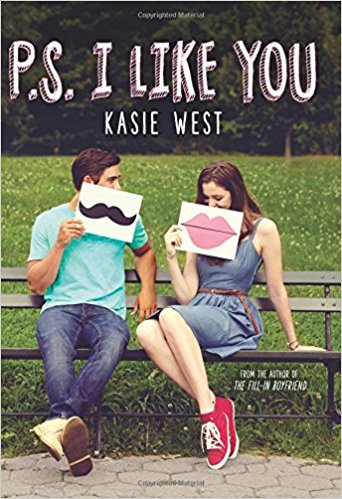 Goodreads as well.
Goodreads as well.
Okay I have a gun to my head and the mysterious bandit wants me to pick a favorite. P.S. I Like You.
I know what you’re thinking: “But By Your Side involves being locked in a library!” This is true but I liked the way the relationship develops in PS I Like You more, and they write letters. Like, real hand-written letters. It’s fantastic.
Okay, back to Lucky In Love.
I am beginning to realize how many books I pick up where I look at the cute couple and the pink balloons on the cover and am like “oh this is going to be a good romance” only to realize that while there is romance, it’s about more than that. I don’t think there is any spoiler in me sharing what this novel is really about: money. Lots and lots and lots and lots and lots and lots of money.
Specifically, it’s about money and how it changes people. Not only people who have it, but the people who really want it.
To be perfectly honest (if such a thing exists), this book was quite hard for me to read. Normally West’s books are good for one sitting, maybe two. I took my time with this one, nearly a week. Money is a hot-button issue with me. I’ve lived life both paycheck-to-paycheck, and also lived life with a comfortable cushion between each pay day. I was lucky enough to have both parents working through the majority of my child hood, and a super saint of a mom who if she was stressed out about money did a pretty darn good job of letting me be a kid anyway. It wasn’t until later in life, when all the true adulting began that I started to understand the true value of money, and what a stressor it can be. Money is on of the top three things that can automatically stress me the fuck out. (Cancellations of favorite television shows and having to forego sleep in order to achieve reading endeavors are the other two in case you were wondering.)
Push comes to shove I have a pretty easy life. I’m gainfully employed, I have decent credit, a reliable vehicle, my mom still tells me I’m special, and I have two adorable puppies. Still, off the top of my head I can think of a hundred things that would significantly improve my life, and all of them would require lots of money. I know I’m not the only one who feels this way.
“There will always be more money,” is something a friend of mine always likes to say. I do applaud her optimistic point of view, and technically it’s true. There always will be more money, but that doesn’t make it any less important. Even sitting here, doing nothing except writing this blog is costing me money. It’s everywhere and in everything. It would be nice if I could power this laptop on puppy cuddles and potato chip crumbs, but alas it runs on electricity, which I pay for. With money. Though I’ve been trying to get the power company to accept original sonnets as payments instead. So far, it’s a no go.
West’s protagonist, Maddie, doesn’t just defy odds and win the lottery. She changes her own life and the lives of everyone around her, and she does this not through optimism or altruistic deeds, but through money. In this book, West explores the age-old adage: money can’t buy you love or happiness (or more book-specific, it can’t help you control your life or solve all of your problems.) West obviously agrees with this, because Maddie quickly realizes the damage that money can do, and how it can change people, even people you love and trust, and turn them into something twisted, greedy and jealous. Maddie eventually begins to realize that not only does she see all those around her in different light until she’s not sure who is on her side, but that she, herself, is seen in a different light by others, and it isn’t always objective, flattering or accurate. Money makes people petty. It’s a sad, tragic truth of this novel.
I worry most teenagers will miss the mark with this novel. I know as a teenager I knew how to spend money, but it wasn’t until I became a struggling adult that I truly understood the power of the dollar, and that I could understand the enormity of becoming a millionaire overnight, and what it all means. Maddie is quite mature about her win, actually. Then again, Maddie’s entire personality constitutes a need for control, so it fits.
What it comes down to is that money isn’t a cure, privilege, or right. It’s a tool. A tool earned by hard work (or in this case, dumb luck) which may or may not aide you in this journey (often stupid and tedious goddamn limping trudge) that we call life.
Aaaaaaaannnnnd, the romance is really adorable too. Seth is a good, rounded out character considering you don’t get his point of view. I had a very vivid picture of him by the end of the book, and I lurved him. And seriously, this was one of the most creative and adorable first dates I have ever read about. If Seth were real, I’d have high-fived him.
As always, Kasie West did not disappoint in her newest novel. I give this four solid stars, because while it was engaging and had deeper meaning, it did not have that captivating factor that often warrants a five star rating. Plus, I felt there were a couple of loose ends at the end, which I can’t really expand upon without giving spoilers. Any fan of contemporary YA romance will feel fulfilled by this novel.
Until, my next reading adventure. It’s going to be…. HA! Not telling. NO SPOILERS!
OH, and because this novel made me think about it a lot, my list of what I’d do if I won the lottery:
- Quit my job. (It’s cool, I’m replaceable.)

I knew it was a thing… - Go back to school and achieve degrees in (in no particular order) Literature, History, Biology, Psychology and Philosophy (the last so I’d have something cool to talk about at parties.)
- Open of a nightclub and throw lots of parties in it, especially themed ones like zombie night and pirate night. Zombie pirate night???!!!!!
- Ensure the life-long solvency of all my closest friends and family, including next generations thereof. #trustfundbabies.
- Buy one absolutely, wildly expensive sports car. Probably an Aston Martin DB11 or Vanquish.
- Build myself the perfect house (cottage, chateau, castle) in the middle of freaking no where, preferably with a view of a waterfall.
- See the world.
- Donate. Donate. Donate. Cancer research, Red Cross, Alzheimer’s research, Parkinson’s research, FEMA, SPCA, the list goes on. I know everyone says they’d do this if they won/earned tons of money, and there’s a reason so many have this instinct. The world owes us absolutely nothing, but goddammit if it isn’t our job to owe the world something if we can afford it.
Completely interested to see some other people’s lists in my comments. Or anything really. I’m not picky.

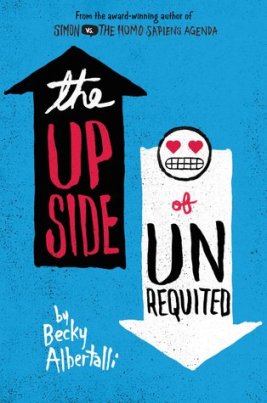 I had the pleasure of reading Becky Albertalli’s newest accomplishment this month, The Upside of Unrequited. This book puts you in feels, especially if at any time in your life you were a teenage girl of questionable proportions who thought “what the fuck are you talking about?” a lot when people were talking to you. (In case you’re wondering, that’s 99% of all teenage girls. I’m assuming that the last 1% are all sociopaths or in a coma.)
I had the pleasure of reading Becky Albertalli’s newest accomplishment this month, The Upside of Unrequited. This book puts you in feels, especially if at any time in your life you were a teenage girl of questionable proportions who thought “what the fuck are you talking about?” a lot when people were talking to you. (In case you’re wondering, that’s 99% of all teenage girls. I’m assuming that the last 1% are all sociopaths or in a coma.)


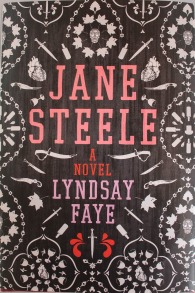




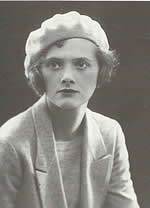




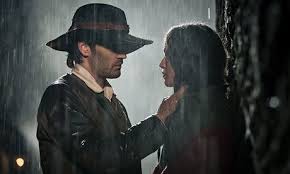
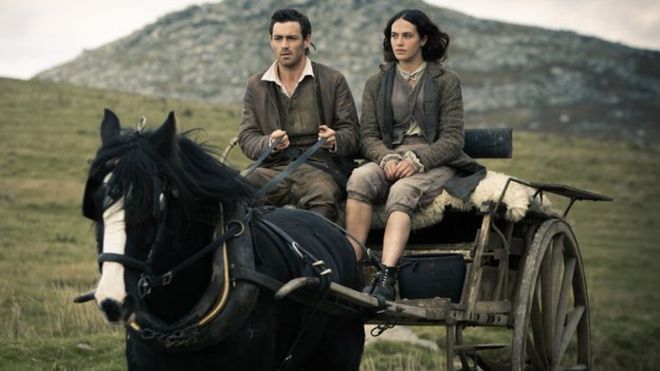
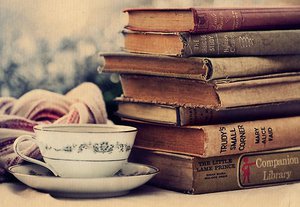 So I read a lot of good books this last year, and some achingly bad ones unfortunately. It wasn’t that hard to narrow down which ones were my favorite. The list came surprisingly easy. Before I start I would like to mention that my best friend in writing shenanigans,
So I read a lot of good books this last year, and some achingly bad ones unfortunately. It wasn’t that hard to narrow down which ones were my favorite. The list came surprisingly easy. Before I start I would like to mention that my best friend in writing shenanigans, 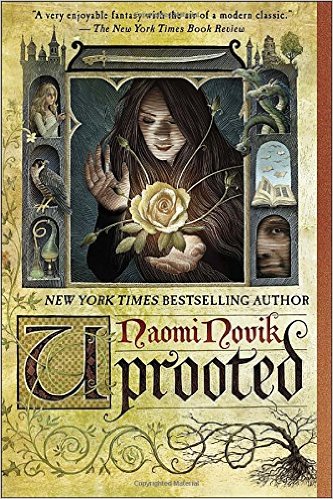 me I guess. But I saw this book sitting on a table at Barnes & Noble begging me to read it simply form the plot line reminiscent of Beauty and the Beast.
me I guess. But I saw this book sitting on a table at Barnes & Noble begging me to read it simply form the plot line reminiscent of Beauty and the Beast.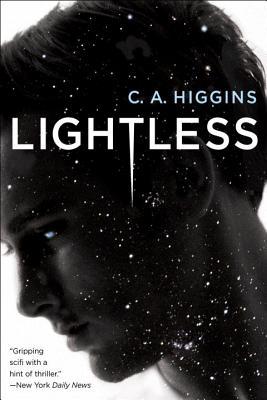 scientist, Althea, who thinks of the Ananke like her daughter. When two fugitives break onboard and plant a virus in an effort to escape, which causes the computer systems to start breaking down one-by-one, Althea begins a head over feet race to save her beloved ship, and is forced to rely on one of the saboteurs, the intriguing yet grossly deceptive Ivan, for help before everything falls apart.
scientist, Althea, who thinks of the Ananke like her daughter. When two fugitives break onboard and plant a virus in an effort to escape, which causes the computer systems to start breaking down one-by-one, Althea begins a head over feet race to save her beloved ship, and is forced to rely on one of the saboteurs, the intriguing yet grossly deceptive Ivan, for help before everything falls apart.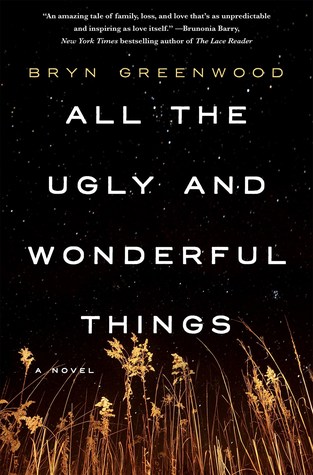 Wavonna “Wavy” Quin is more of a parent to herself then her actual parents. Her mother, a narcissistic addict, and her father, a violent drug dealer, could give less than two shits about her or Wavy’s little brother. Obsessed with astronomy and struggling to survive, Wavy finds an unlikely ally in Kellen, one of her father’s enforcers.
Wavonna “Wavy” Quin is more of a parent to herself then her actual parents. Her mother, a narcissistic addict, and her father, a violent drug dealer, could give less than two shits about her or Wavy’s little brother. Obsessed with astronomy and struggling to survive, Wavy finds an unlikely ally in Kellen, one of her father’s enforcers.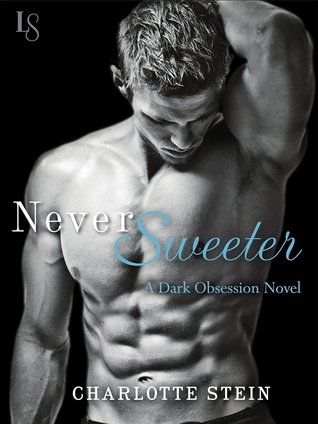
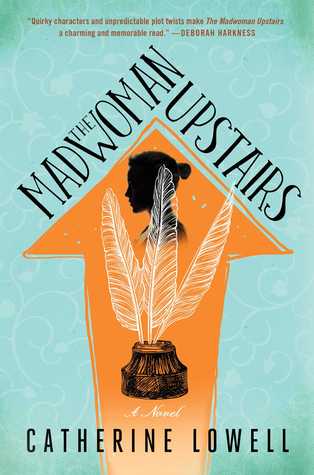 Oxford and quickly finds herself ensnared in the mystery of the infamous Bronte estate when heirlooms of her deceased, eccentric father keep ending up on the doorstep of her creepy tower dorm room. Falling into the sinkhole of rumored past, Samantha enlists her devastatingly handsome and acerbic literature professor to help her figure out the clues to the legacy her father left behind.
Oxford and quickly finds herself ensnared in the mystery of the infamous Bronte estate when heirlooms of her deceased, eccentric father keep ending up on the doorstep of her creepy tower dorm room. Falling into the sinkhole of rumored past, Samantha enlists her devastatingly handsome and acerbic literature professor to help her figure out the clues to the legacy her father left behind.